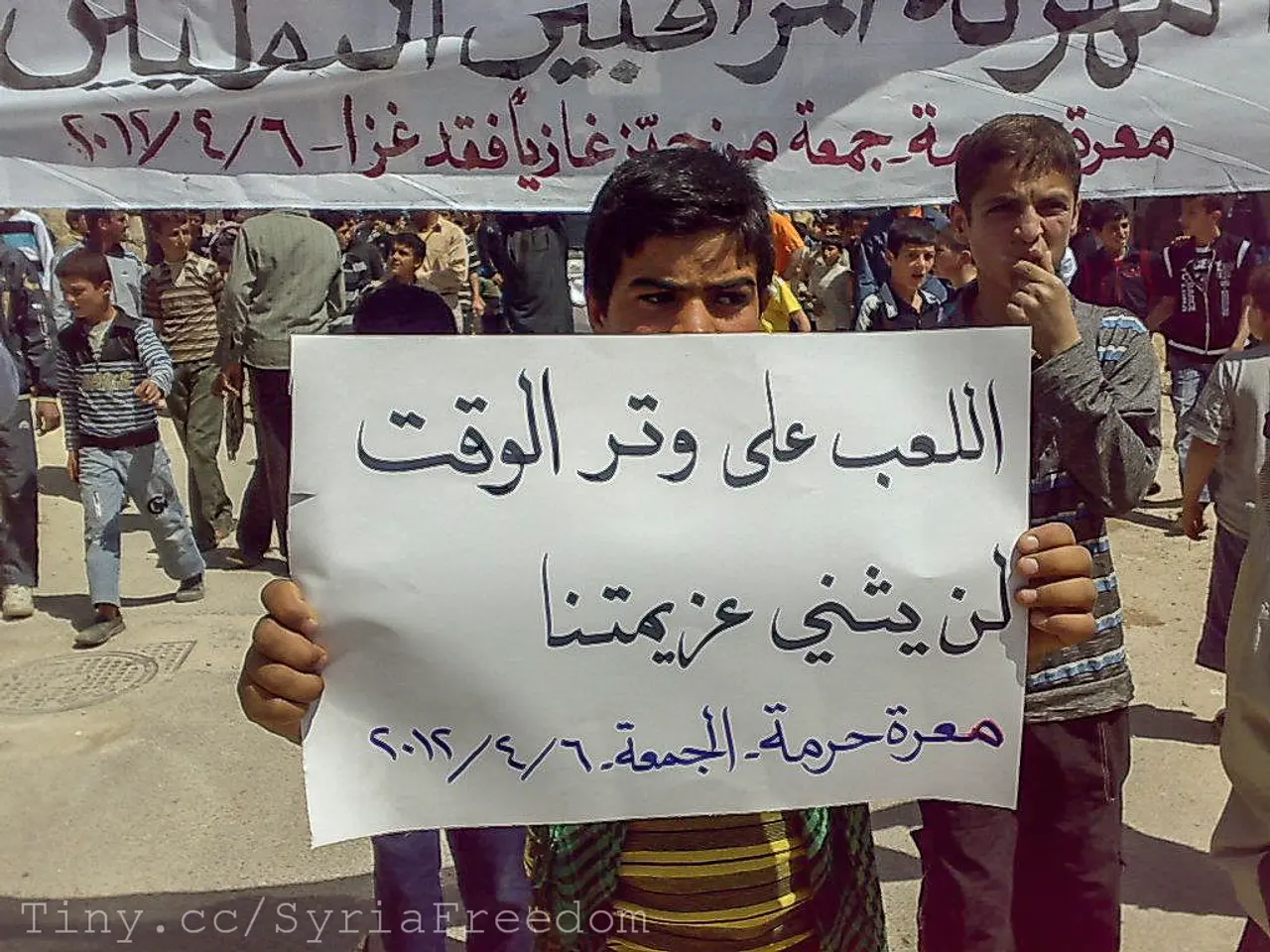Perception of Gaza Conflict and Palatine Strife Among Israelis
In the midst of ongoing conflict, a recent survey reveals that the majority of Israelis have witnessed the widespread destruction in Gaza, with over three-quarters having seen many or a few images [1]. This revelation comes as the Israeli government expands its military campaign in the occupied Gaza Strip [3].
Amidst this escalation, the focus for many Israelis remains on the safety and immediate release of the 50 hostages being held by the militant Hamas group within the Gaza Strip [2]. A significant proportion of Israelis, 53%, feel this way by the anniversary of the attack [1].
Large demonstrations within Israel show tens of thousands supporting the families of these hostages and calling for decisive government action to secure their loved ones’ freedom [5]. Israeli author Etgar Keret, who has been protesting against his government’s actions for months, is pleased to see more of his countrypeople joining in the criticism [4].
The Israeli government insists on a hostage release deal only if all captives are freed at once, rejecting proposals involving staggered or partial releases [2][4]. This hardline stance is reflected in public discourse, with strong resistance to a ceasefire that does not guarantee complete hostage release and adequate security measures [4].
Despite international criticism and domestic dissent, the planned expansion of military operations in Gaza, including the call-up of 60,000 reservists, reflects the government's position to intensify the campaign [3]. The attitudes of ordinary Israelis support these findings, with only 21% of Israelis thinking Israel and a Palestinian state can coexist peacefully [6]. Moreover, 82% of Jewish Israelis could imagine Palestinians being expelled from Gaza completely [6].
It's worth noting that while a majority of Israelis want to get the hostages back, research indicates they don't feel much sympathy for Palestinians [2]. This lack of empathy, according to Keret, can be attributed to fear and inconsistency in news reporting [4].
The shift towards these extremist attitudes can be traced back to the 1930s, with their gain in steam and public acceptance as prospects for peace fell apart in the 1990s, existential anxiety among Israelis has grown, and religious Zionists have gained more political power in the 21st century [7].
In the face of this public sentiment, voices of dissent such as Keret's are becoming increasingly important. Naama Shueka, a relative of an current hostage, is calling for an end to the fighting to save the hostages [5]. Gil Dickmann, a relative of a deceased hostage, stated that previous occupations of land in Gaza had put hostages at risk [5].
As the conflict continues, the focus on hostage release and military action against Gaza remains a central issue in Israeli public opinion, with little indication of broad support for an immediate ceasefire that does not address these goals directly [2][3].
References:
- IDI Survey, April 2025
- BBC News, August 2025
- New York Times, August 2025
- Sueddeutsche Zeitung, August 2025
- Pew Research Center, March 2025
- Pew Research Center, March 2025
- Professor Tamir Sorek, Pennsylvania State University, 2025
- The ongoing conflict between Israel and the militant Hamas group in Gaza has led to a majority of Israelis witnessing the widespread destruction in Gaza through media, with over three-quarters seeing many or a few images.
- The Israeli government's hardline stance on a hostage release deal, which demands the freedom of all captives at once, is shared by a significant proportion of Israelis, despite calls for immediate government action for the safety and release of the 50 hostages being held by Hamas.
- As the Israeli government expands its military campaigns in Gaza, public discourse shows strong resistance to a ceasefire that does not guarantee complete hostage release and sufficient security measures.
- A recent survey reveals that while a majority of Israelis want to secure the release of the hostages, they lack empathy for Palestinians and only 21% believe Israel and a Palestinian state can coexist peacefully.
- In the midst of escalating war-and-conflicts and increasing extremist attitudes, the media spotlight remains on general-news stories of politics and international discussion surrounding the hostage crisis in Gaza, with dissenting voices calling for an end to the fighting to save the lives of those held captive.






